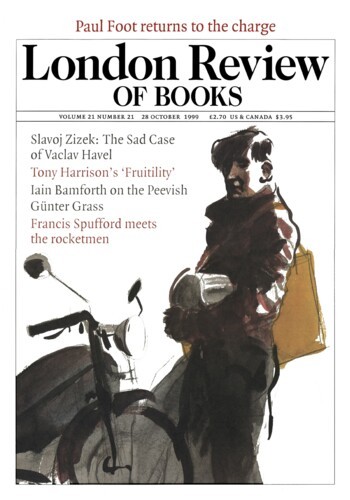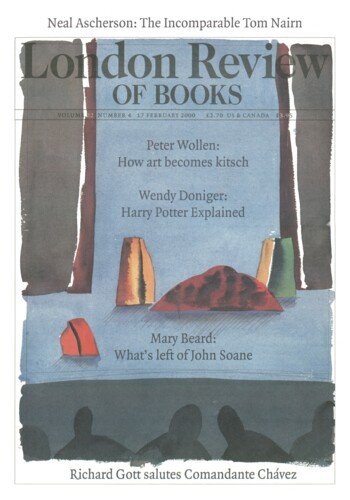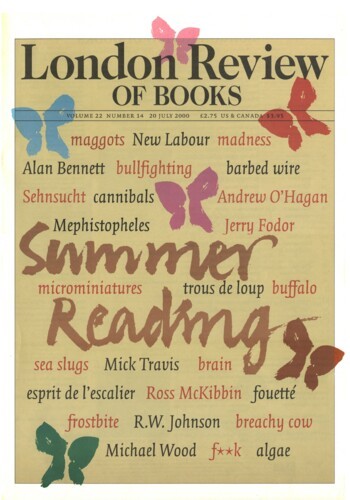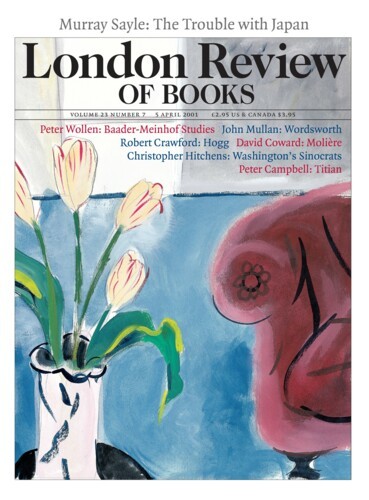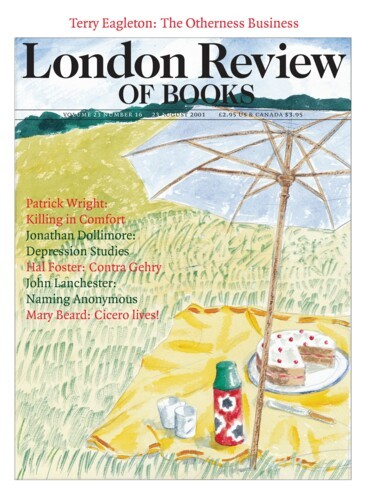The Labour of Being at Ease
John Mullan, 28 October 1999
What is the opposite of Reason? To some writing in the late 17th and early 18th century the answer was Enthusiasm. ‘Enthusiasm’ meant knowing the truth by direct inspiration – being in direct communication with God. ‘Enthusiasm’, Locke wrote in his Essay Concerning Human Understanding, takes ‘the ungrounded Fancies of a Man’s own Brain, and assumes them for a Foundation both of Opinion and Conduct’. Enthusiasts are ‘raised into an Opinion of a greater familiarity with GOD, and a nearer admittance to his Favour than is afforded to others’. They know that they are doing what God wants. Enthusiasm intrigued Locke and other Enlightenment thinkers because it appeared an exemplary case of unreason. More than dogmatism, superstition or intolerance, it represented the human inclination to ‘get above’ rational thought.’‘
